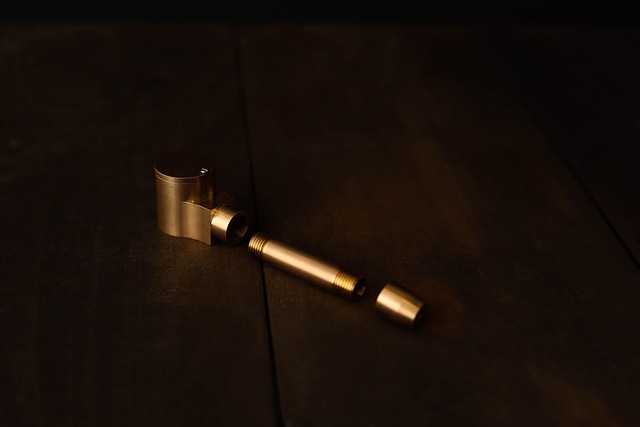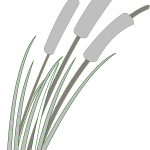The THCA flower, a non-psychoactive compound found in hemp and cannabis plants, is gaining attention for its potential to support cognitive function and mental clarity. Emerging research suggests that THCA may interact with the endocannabinoid system, influencing neurotransmitter activity and offering neuroprotective and anti-inflammatory effects beneficial for maintaining cognitive health. Unlike its psychoactive counterpart, THC, THCA is associated with anecdotal reports of improved focus and mental acuity without impairing cognitive abilities. The THCA flower's impact on mental clarity is thought to arise from its modulation of key neurotransmitter systems, such as serotonergic and glutamatergic pathways, which could enhance concentration and focus. While THCA can induce mild psychoactive effects, these are generally less pronounced than those of THC and can be managed by starting with a low dose and adjusting usage based on individual tolerance. Users should approach THCA flower with caution, paying attention to personal responses and potential side effects like dizziness or mild anxiety. For those interested in using THCA flower for mental clarity, it's advisable to consult with a healthcare professional, especially if they have existing health issues or are taking other medications. Proper dosing, understanding one's body's response, and adhering to legal guidelines ensure a safe and effective use of THCA flower, potentially enhancing daily cognitive performance.
Exploring the therapeutic properties of THCA flower has garnered significant interest due to its potential to enhance mental clarity. This article delves into the multifaceted effects of THCA, a non-psychoactive cannabinoid found in hemp and marijuana plants. We will examine how THCA flower interacts with cognitive processes, discuss the science behind its influence on mental function, and provide insights into managing its side effects effectively. With a focus on thca flower for mental clarity, readers will gain a comprehensive understanding of how to incorporate this substance into their routines safely and effectively, ensuring they can harness its benefits while minimizing any adverse reactions. Join us as we navigate the nuances of THCA flower and its impact on our well-being.
- Unveiling the Potential of THCA Flower for Enhanced Mental Clarity
- The Science Behind THCA Flower and Its Effects on Cognitive Function
- Navigating the Side Effects of THCA Flower Use
- Understanding Dosage: The Key to Minimizing THCA Flower Side Effects
- Integrating THCA Flower into Your Routine Safely and Effectively
Unveiling the Potential of THCA Flower for Enhanced Mental Clarity

The exploration of THCA flower’s effects on cognitive function has garnered significant attention within both scientific and consumer circles. THC Acid (THCA), the precursor to the well-known psychoactive compound THC, is found in raw or uncured cannabis plants. Studies suggest that THCA flower may hold promise for enhancing mental clarity. Preclinical research indicates that THCA interacts with the body’s endocannabinoid system, potentially modulating neurotransmitter function and influencing cognitive processes. This interaction could underpin the reported experiences of improved focus and heightened mental acuity among users. Furthermore, the non-psychoactive nature of THCA allows for its potential therapeutic use without the impairment associated with its psychoactive counterpart, THC. As such, the THCA flower is being investigated as a possible aid for individuals seeking to optimize their mental performance and clarity in daily tasks and intellectual activities. Users report a clear-headed focus without the clouded judgement sometimes experienced with other cannabinoids, making it a subject of interest for those looking for natural ways to support cognitive function.
The Science Behind THCA Flower and Its Effects on Cognitive Function

delta-9-tetrahydrocannabinolic acid (THCA) is the non-psychoactive precursor to the well-known compound delta-9-tetrahydrocannabinol (THC). Found abundantly in raw cannabis plants, including the flower, THCA has been subject to extensive scientific investigation for its potential effects on cognitive function. Preclinical studies suggest that THCA may exert neuroprotective and anti-inflammatory properties which could be beneficial for cognitive health. These effects are thought to stem from THCA’s interaction with the body’s endocannabinoid system, a complex network involved in regulating various physiological processes including mood, memory, and cognitive function.
Research indicates that THCA flower may promote mental clarity by modulating neurotransmitter systems such as the serotonergic and glutamatergic pathways. This modulation could enhance focus and concentration, potentially aiding in the management of certain cognitive deficits or enhancing overall brain performance. While the effects of THCA are being studied, early findings are promising for those seeking natural alternatives to support mental acuity and clarity without the psychoactive effects associated with THC. As such, the use of THCA flower for mental clarity is an area of interest that merits further exploration through well-designed clinical trials to fully understand its implications for cognitive health.
Navigating the Side Effects of THCA Flower Use

When integrating THCA flower into one’s routine for potential mental clarity benefits, it is prudent to be aware of its side effects. THCA, or tetrahydrocannabinolic acid, is a non-psychoactive precursor to THC found in hemp and cannabis plants. While it is touted for its cognitive-enhancing properties, users may experience a range of side effects. These can include mild psychoactive effects, which can impact mental clarity if one is sensitive or consumes an amount that exceeds their tolerance level. Additionally, some individuals may encounter dizziness or mild anxiety, especially in environments or situations that are new or challenging. It is also worth noting that the body’s response to THCA flower can be influenced by various factors, including individual physiology, dosage, and the specific strain of the plant used. Therefore, users are advised to start with a low dose to gauge their reaction and proceed cautiously to maintain mental clarity and overall well-being. As with any supplement or medication, it is essential to listen to one’s body and adjust usage accordingly, consulting healthcare professionals as necessary.
Understanding Dosage: The Key to Minimizing THCA Flower Side Effects

navigating the effects of THCA flowers hinges critically on understanding the right dosage. THCA, or Tetrahydrocannabinolic Acid, is a non-psychoactive precursor to the well-known THC found in cannabis. Consumers often seek out THCA flowers for their potential cognitive benefits, including mental clarity. Proper dosing is paramount as excessive consumption can lead to side effects such as anxiety, paranoia, or disorientation. Each individual’s body responds differently to cannabinoids, making a ‘one size fits all’ approach inadvisable. New users should start with a low dose to gauge their sensitivity and gradually increase the amount while closely monitoring their reaction. The goal is to find the sweet spot where the desired mental clarity is achieved without tipping the scales into adverse effects. It’s essential to listen to one’s body and adjust intake accordingly, as personal tolerance levels can vary widely. By adhering to a dosage that aligns with individual needs and being mindful of personal thresholds, users can maximize the benefits of THCA flowers for mental clarity while minimizing potential side effects.
Integrating THCA Flower into Your Routine Safely and Effectively

Incorporating THCA flower into your daily routine can be a beneficial addition for those seeking enhanced mental clarity. Tetrahydrocannabinolic acid (THCA), the raw form of THC found in hemp and cannabis plants, is gaining attention for its potential cognitive benefits. To safely integrate THCA flower into your regimen, it’s crucial to begin with a low dose to assess individual tolerance. Regular users often report that consuming THCA flower first thing in the morning can set a clear and focused tone for the day. For optimal effects on mental clarity, consider the method of consumption; vaporizing or consuming edibles may offer different experiences compared to smoking. Additionally, timing your intake with moments when you need a mental boost, such as before engaging in creative or analytical tasks, can maximize the benefits. Always source high-quality THCA flower from reputable suppliers and adhere to local laws and regulations regarding its use. It’s also advisable to consult with a healthcare professional before making any changes to your wellness routine, particularly if you have underlying health conditions or are taking other medications. By following these guidelines, you can explore the potential mental clarity benefits of THCA flower effectively and responsibly within your daily life.
In conclusion, the exploration of THCA flower as a means to enhance mental clarity has been illuminated through scientific examination, revealing its potential cognitive benefits. Users should approach its integration into their routines with careful consideration, particularly regarding dosage, to mitigate any adverse effects. It’s clear that THCA flower, when used responsibly, may offer a compelling alternative for those seeking to support their mental acuity and well-being. As with any substance, individual responses vary, and it’s advisable to consult with healthcare professionals before incorporating THCA flower into one’s health regimen. By understanding the nuances of its use and adhering to appropriate dosage guidelines, users can safely harness the advantages of THCA flower for mental clarity.

